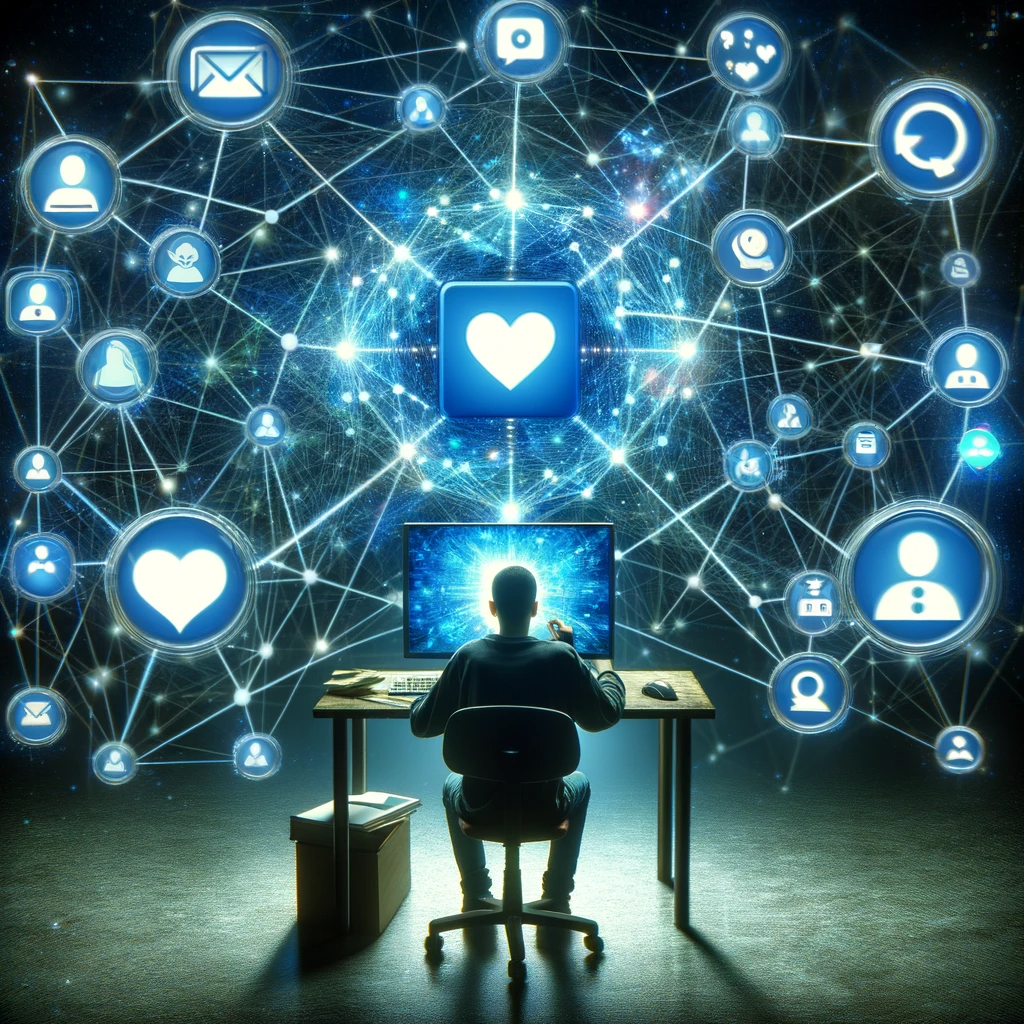
Understanding the intersection between addiction and social media is becoming increasingly important in our digitally connected world. Social media platforms are designed to capture and retain user attention, and for some, this can lead to patterns of behavior that resemble addiction. Here’s an exploration of how and why social media can become addictive and the impacts it may have.
The Nature of Social Media Addiction:
- Instant Gratification: Social media platforms provide instant gratification in the form of likes, comments, and shares. These immediate rewards can create a compulsive cycle of posting and checking for responses, similar to how gamblers respond to the immediate reward structure of slot machines.
- Dopamine Response: Engaging with social media triggers the release of dopamine, a neurotransmitter associated with pleasure. Over time, the brain starts to associate social media use with pleasure, driving individuals to seek out this digital stimulation repeatedly.
- Fear of Missing Out (FOMO): Social media fuels a constant fear of missing out on important news, events, or social interactions. This fear can drive compulsive checking and use of social media platforms.
Signs of Social Media Addiction:
- Excessive Use: Spending a significant amount of time on social media, often at the expense of real-life interactions or responsibilities.
- Withdrawal: Feeling restless, anxious, or irritable when unable to access social media.
- Neglect of Personal Life: Neglecting relationships, work, or school in favor of social media use.
- Loss of Interest: Losing interest in activities that were once enjoyable in favor of social media use.
Psychological and Social Impacts:
- Mood Disorders: Excessive social media use has been linked to increased rates of depression and anxiety.
- Self-Esteem Issues: Constant comparison with others’ curated lives can lead to feelings of inadequacy and low self-esteem.
- Sleep Disturbances: The compulsive need to check social media can lead to disrupted sleep patterns, impacting overall health.
- Impaired Relationships: Excessive use can damage real-life relationships, leading to feelings of isolation and loneliness.
Understanding the Cause:
- Design: Social media platforms are designed to be addictive. Features like infinite scrolling, notifications, and algorithmically curated content are meant to keep users engaged for as long as possible.
- Cultural Factors: There’s increasing cultural pressure to be present and active on social media, whether for personal expression, professional networking, or staying informed.
Strategies for Management:
- Awareness and Education: Understanding the addictive nature of social media and recognizing personal patterns of use is the first step in managing use.
- Digital Detox: Periodically disconnecting from social media can help break the cycle of dependency and restore a sense of control.
- Set Limits: Using tools to limit time spent on social media platforms or setting personal rules about when and where to engage with social media can help establish healthier habits.
- Seek Professional Help: If social media use is causing significant distress or impacting your life, seeking help from a mental health professional can provide strategies to manage use and address underlying issues.
Conclusion:
While social media has revolutionized the way we connect and communicate, its addictive potential is a growing concern. Understanding the mechanisms behind this form of digital addiction and recognizing the signs and impacts is crucial for maintaining a healthy balance. By being mindful of our patterns of use, setting boundaries, and seeking support when needed, we can mitigate the negative effects and use social media in a way that enhances rather than detracts from our lives.


